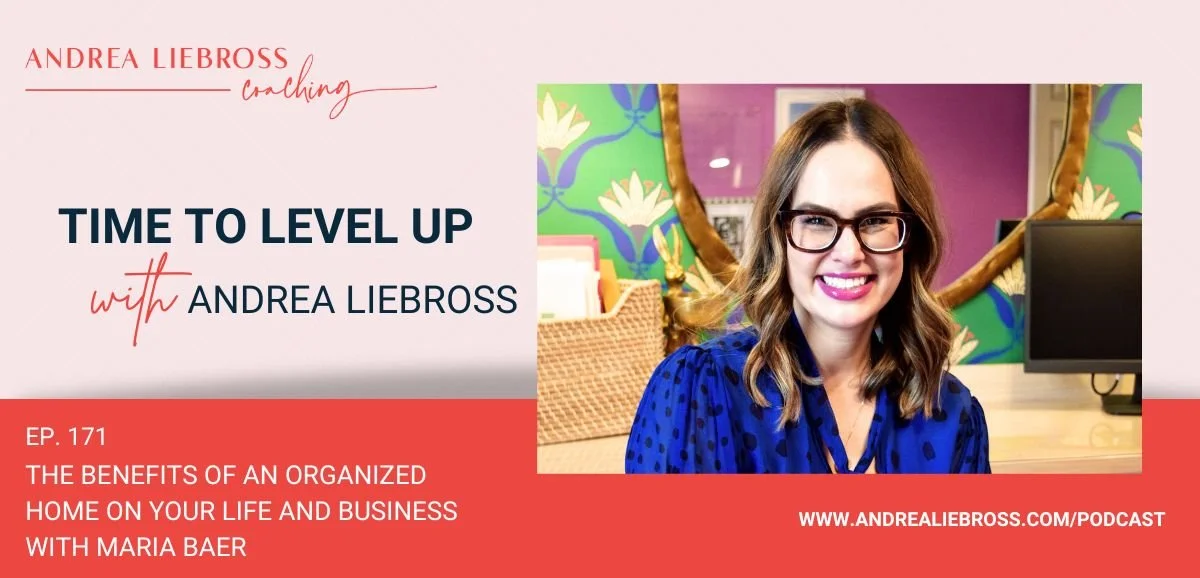171: The Benefits of an Organized Home on Your Life and Business with Maria Baer
Moving can be a nightmare!
You have to put your house on the market, find a new house to move into (or, in my case, wait for yours to finish being built), and juggle with where you’ll stay in the interim if necessary. In the meantime, you’re packing and unpacking, hemming and hawing over what to keep and what to throw out or donate, and so on. Oh, and you’re still trying to run the rest of your life and business, too!
But you don’t have to take it all on by yourself. You can even hire experts like Maria Baer to help you with unpacking, decluttering, and organizing everything! She owns the Indianapolis-based home organizing company The Baer Minimalist and really helped make the transition of moving into our new house easier. She also knows the value of having help--the personal support she provides for clients domestically she had to get for herself in her business.
In this episode of Time to Level Up, you’ll learn about the benefits of having an organized home and its effect on other areas of your life. You’ll also hear about the perks of giving up control and decision-making power when necessary and how hiring out support helps Maria with work-life integration as a mom of two five-year-old boys.
What’s Covered in This Episode About The Benefits of an Organized Home
1:41 - Maria’s introduction and how she helped make the move into my new house easier
5:38 - How Maria works with clients, the pros and cons of unpacking and organizing items, and why giving up control doesn’t have to be hard
10:33 - Why Maria loves organizing, how things function in her house, and the benefits of having an organized home
18:15 - Two things that prevent people from organizing their homes on their own
22:05 - How Maria’s journey working for other people’s businesses eventually led to the start of her own business
27:33 - How having support helps Maria balance working on her business and in her business (especially with two preschool boys)
34:39 - Maria’s speed round answers and the link between her donation guide and how she wants to be remembered
Connect with Maria Baer
Maria Baer is the Founder and Lead Organizer of The Baer Minimalist, focused on helping busy families across the Indianapolis metro area Cut the Clutter, Donate + Do Good and Cue the Confetti. Founded in 2017, The Baer Minimalist helps breathe life into your space, highlight the things that matter most, and find a better system for being both organized + stylized – whether you’re prepping for a bundle of joy, settling into your dream home or finally tackling that growing mystery pile in your closet.
Maria Baer on Facebook | Instagram | LinkedIn
Mentioned In The Benefits of an Organized Home on Your Life and Business with Maria Baer
Andrea on LinkedIn, Instagram, and Facebook
Quotes from the Episode
“Organizing has always been a way to really have control over my space.” - Maria Baer
“What I love about organizing is everyone in the house knows where things live.” - Maria Baer
“It’s been easier for me to get rid of things now that everything is organized.” - Andrea Liebross
Links to other episodes
152: How to Combat Decision Fatigue in Everyday Life
160: How to Recognize and Combat Signs of Loneliness In Your Business
169: 5 Key Principles to Create the Lifestyle You Want In Your Life Plan
[fusebox_transcript]

